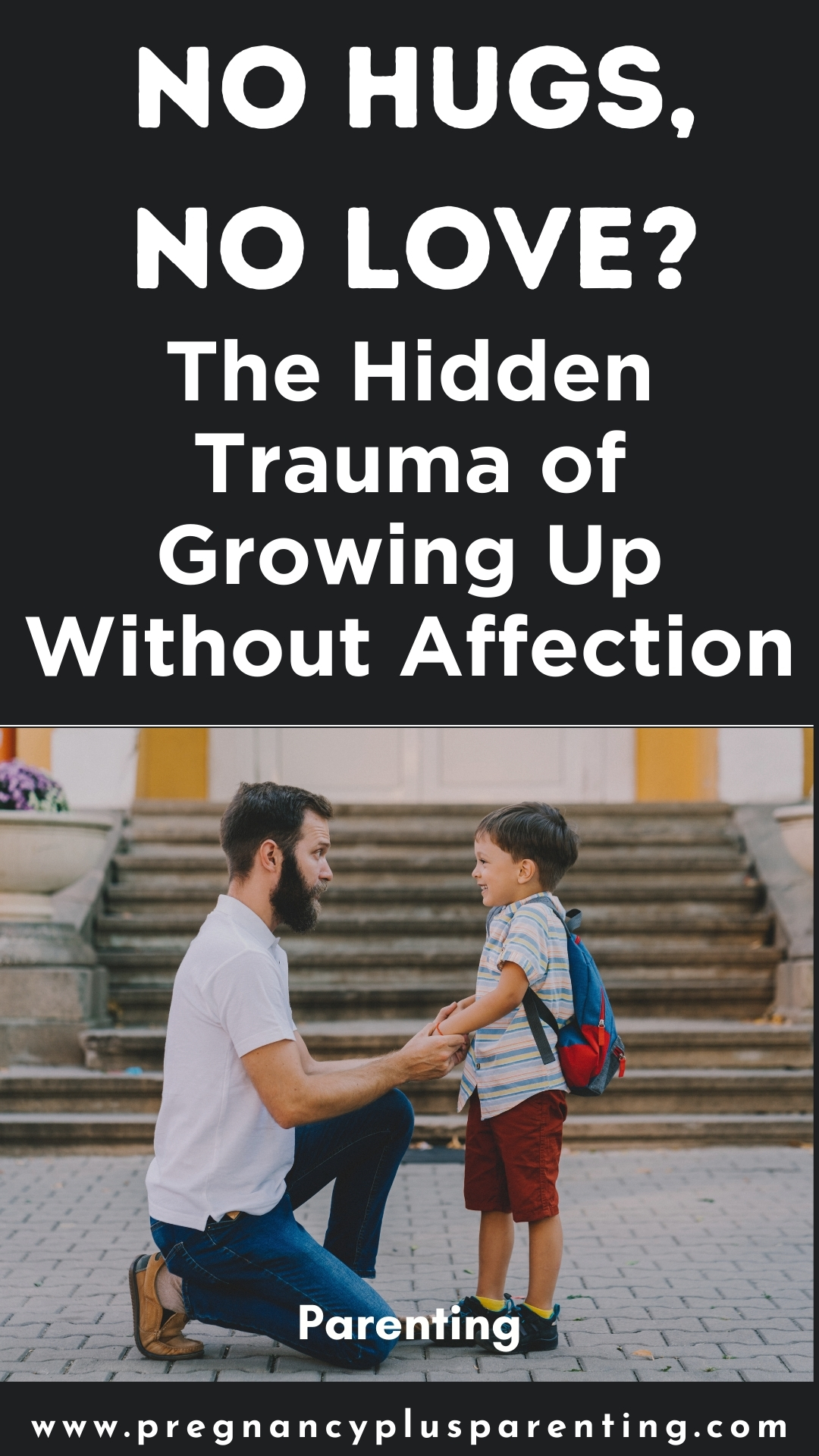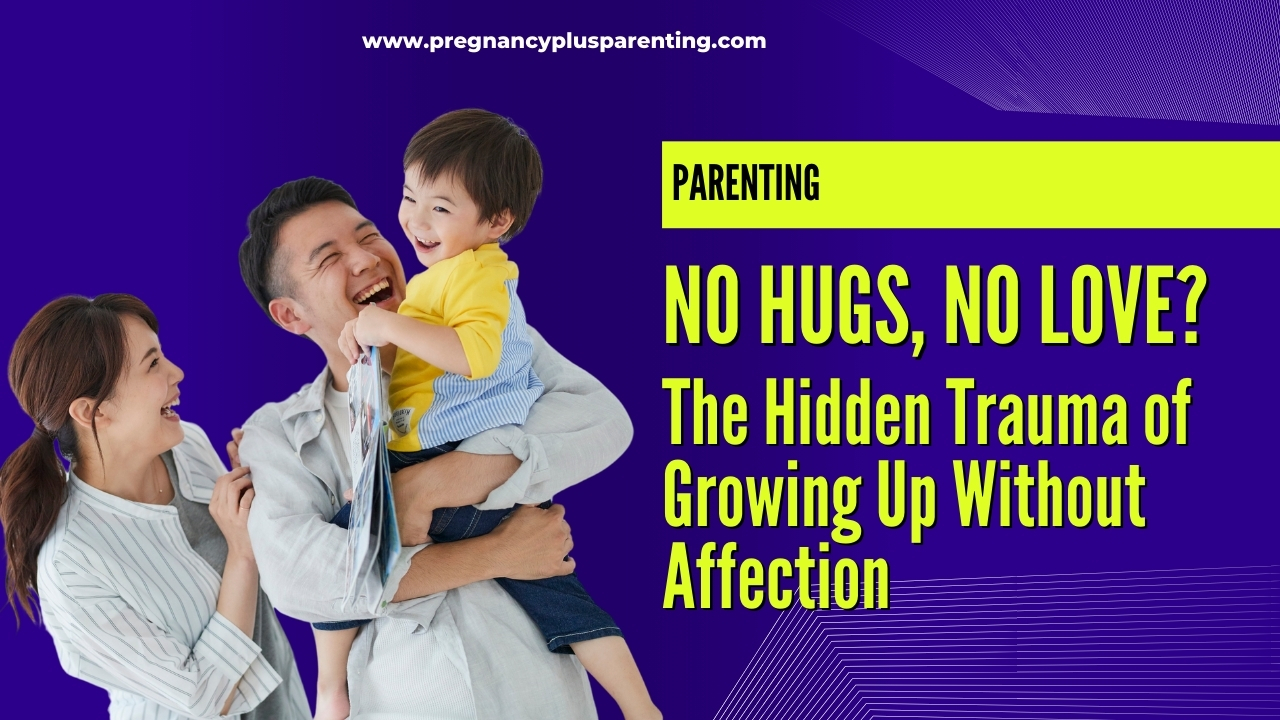No Hugs, No Love? The Hidden Trauma of Growing Up Without Affection
Today, everyone knows that people have a basic need for love and security. Parents are, of course, the first caregivers to fulfill this need.
Lack of motherly love: long-term consequences – But what happens if the mother does not show affection to her child?
What effect does this have on a small creature?
What are the consequences of a lack of maternal love in adulthood?
How can you close the gap and compensate for the missing love?
In this article you will find the answers.
Lack of motherly love: long-term consequences in adulthood – What causes a lack of motherly love?
Lack of parental love also causes major problems later in life:
• Anxiety disorders
• lack of social skills and lack of empathy
• low self-esteem
• pathological guilty conscience
• the tendency towards unhealthy relationships and
• passing on one’s own experience patterns to one’s own children.
Psychologists and educators agree: children’s basic need for maternal love shapes them throughout their lives. It has far-reaching consequences for the unloved child.
Nobody wants to live in fear
Lack of parental affection in childhood often manifests itself in adulthood through anxiety disorders and increased fearfulness.
Panic attacks also occur. Those affected are always plagued by uncertainty and vague fears.
Those who didn’t experience love as children often live in isolation as adults. They find it difficult to make decisions because they lack self-confidence. They avoid contact with other people.
Lack of self-esteem makes life difficult: you are constantly afraid that something bad will happen, that you will make mistakes and simply not be able to do your job properly.
These anxiety states must be treated.
Psychologists and educators are convinced that affection and care from a mother are essential for developing self-confidence. Children need to learn that they are loved despite mistakes and that they can overcome challenges.
Empathy cannot develop, loneliness threatens
Not only do neglected children suffer from low self-esteem, they also fail to learn empathy. The ability to understand and empathize with people and their feelings is something that has to be learned.
But emotional neglect teaches the child that how they feel is unimportant. It sends the message that they don’t deserve love.
This basic feeling is present in every social interaction. Social skills also suffer as a result. Those affected withdraw and remain alone.
If even your parents don’t let you know that you’re loved and protected, how cold and unwelcoming must the rest of the world seem? Yes, you soon learn that you’re unique only to your parents.
That only they will always be there for you, no matter what happens.
This is the foundation, this is what makes basic trust possible. If a young child doesn’t experience this from their parents, they will suffer from insecurity and a lack of self-esteem in adulthood. Love in the early years of life is enormously important.
Insecurity and self-doubt in later life
The withdrawal of love is understood as a punishment: There is something wrong with me.
When parents emotionally neglect their child, the child receives no feedback about their behavior and personality. They simply cannot form a self-image.
If affection, cuddles and emotional support are missing, the child thinks he or she is not good enough.
It’s no wonder that those affected are unable to develop self-confidence. And what does this ultimately lead to?
As adults, you don’t set boundaries for fear of rejection. You can’t say “no” because you constantly feel like you have to earn appreciation.
Other behaviors are also common in cases of low self-esteem: fear of conflict situations or, conversely, the avoidance of arguments.
Isolation and withdrawal from difficulties or hasty self-defense.
Self-harming or aggressive behavior can also be observed in affected children.
No courage to trust
The lack of self-esteem, anxiety, and social skills leave those affected feeling very alone. They deal with problems in isolation and don’t confide in anyone.
What can I say to others? I’m not worthy of your help? I’m afraid you don’t like me, but are just friends with me out of self-interest? I feel like nothing?
By adolescence, at the latest, the hiding of such thoughts and feelings becomes apparent in relationship problems. Friendships and relationships are rarely formed.
Those affected don’t expect good things from others. How could they, when not even their own parents considered their needs?
Distrust of people weighs heavily on the mind and soul. The aforementioned fundamental trust has never been experienced. Trust is, after all, a decision.
For pathological reasons, those affected do not have the courage to decide to do so.
No rejection
The tangle of negative long-term consequences is becoming increasingly complex: lack of self-esteem, anxiety and mistrust increase the fear of rejection.
Those affected rarely take the first step towards someone, rarely talk to people and do not enter into relationships.
More or less unconsciously, a wall is built to the outside world to shield us from further injury.
They hold back their own opinions because they’ve learned that they’re not important. They don’t give much thought to their own wishes because their parents ignored them.
In later life, this often leads to fear of commitment and difficult relationships with others.
Guilt and shame must be made good
Another terrible long-term consequence of a lack of motherly love: The child doesn’t take themselves seriously, even as an adult. Everyone else is simply more important, worth more, better, more valuable. And that has to be done right somehow.
Those affected by the consequences of a lack of parental love later feel guilty when they think about their own needs.
An inner voice or feeling whispers to them that they don’t deserve this.
Feelings of guilt drive them to always put others first. A guilty conscience haunts them even when they’re feeling good. There it is again, that voice whispering: Something’s wrong. You don’t deserve this.
Attracted to unhealthy relationships
All of this comes in a context that is self-destructive: those who suffer from a lack of motherly love are likely to enter into unhealthy relationships later on.
Consciously or unconsciously, those affected believe they don’t deserve loving treatment. They view their partners’ bad behavior patterns as justified punishment.
Just as they perceived the lack of care in childhood as a deserved punishment, the way their parents treated them shaped their understanding of what was normal and what to expect.
The result can be poor treatment and even psychological abuse in relationships and friendships. Low self-esteem, isolation, and fear can paralyze those affected.
You can’t find a way out of the situation on your own.
Lack of motherly love – causes of the crime
What you don’t often read: Motherly love is actually hard-earned. Hormones help foster affection. But many factors can interfere:
• Bad experiences and a bad relationship with oneself
• Unwanted pregnancy
• Lack of support and excessive demands
• Diseases
Patterns that repeat themselves
Berlin psychotherapist Corinna Buchholz explains that women pass on their early experiences to their children.
If the relationship with one’s own mother was difficult and remained unreflected, one can develop dislike and even aggression towards one’s own baby.
This can be seen as a long-term consequence of a lack of maternal love—a vicious circle develops. Psychotherapy is the key to healing here.
Unwanted child – unloved child?
The bond between parent and child also has a negative impact if the child is not the desired child. The frustration of having to dedicate one’s life to an unwanted child weighs heavily.
It can be so big that no affection arises.
Some women perceive the growing baby in their womb as a disease that is spreading. Pregnancy discomforts are also not taken for granted.
And these feelings and thoughts aren’t coming out. The public doesn’t want to understand this. It’s all stressful and a possible cause of a lack of affection.
High expectations, deep fall
Speaking of publicity: The media perpetuates the myth of natural, unconditional maternal love. And the demands placed on women to juggle everything as quickly as possible: small family, children, household, career, and private life.
No wonder that the motherly love so often praised suffers under pressure and excessive demands.
Burnout and disorders
Lack of support and excessive demands can lead to burnout. The new mother thinks: I don’t love my child, it’s destroying me mentally .
Postpartum depression is a serious disorder and requires treatment. A key feature of depression is that emotional experience is disturbed and aggressive behavior may occur.
A permanent guilty conscience accompanies this serious condition.
Personality disorders such as borderline personality disorder and narcissism also make it virtually impossible to feel and give unconditional love. A narcissistic mother will negatively influence her child throughout their life.
Extreme cases
Some new mothers have thoughts of killing when they feel overwhelmed, and many are unable to feel parental love at first.
Mothers are subject to constant fluctuations, and maternal love changes over time. It has to be learned and developed.
There are mothers who, without batting an eyelid, abandon their children, let them starve, shake them to death, or beat them.
Nothing is more frightening than such news. On the other hand, there is the myth of unfailing maternal love.
No, she’s certainly not infallible. Being a mother is an enormous challenge that deserves much more understanding.
Lack of motherly love & consequences – My personal story
If you lack motherly care at any point, you’ll have to deal with the consequences your entire life. I know that only too well.
Difficult start
My mom is the best mother in the world to me. Unfortunately, severe misfortune and mental illness meant that I didn’t get enough love from her…
My inner child still suffers from the long-forgotten lack of care. Of course, I can’t remember how I missed my mother’s affection as an infant.
She had suffered from postpartum depression but did not seek treatment.
The threatening black hole
When I was three years old, a serious loss in a difficult life situation plunged my mother into a deep emotional crisis.
I also lack memories from that time. Today, I experience my very early childhood as a black hole, a numb, heavy, threatening emptiness.
As a child, I didn’t exhibit aggressive behavior, eating disorders, or other unpleasant behaviors. However, I isolated myself and couldn’t connect with other children, feeling worthless compared to them.
Unable to stand up for myself
Later, I reacted paralyzed to criticism and insults. I couldn’t bring myself to take a stand. But the words weighed heavily on me.
I replayed it in my head again and again, thinking of appropriate responses. And it hurt much longer than if I had reacted.
No limits, no fulfillment
It wasn’t until much later that I realized that my early childhood experiences had something to do with my inability to set boundaries. Whether in my professional or personal life, I always gave my all, absolutely everything.
I worked until I was exhausted or adapted until I despised myself.
I have become a complacent and insecure person.
Always a loser
No matter what I’ve accomplished in life, it’s never good enough. Something drives me, and I don’t really understand what it is. Sometimes I think I’m too ambitious. But then I’m convinced otherwise.
I don’t want to pursue a managerial career or a special position. While I feel I have the qualities for it, such aspirations are deeply repugnant to me.
I don’t like competitions and comparisons.
The fact that they can be good and have also inspired me to perform better is secondary to me. In my own mind, I always come off worse when compared.
Abuse in the relationship
The culmination of all these attitudes and behaviors was a deeply destructive act: I entered into a toxic relationship with a deeply disturbed person.
Only extreme circumstances prevented the worst. I didn’t save myself from the relationship; it was pure coincidence. Fate. Or God’s will.
How you take it.
Later, when I went to psychotherapy, I realized for the first time that I thought back then: I deserve his treatment. I knew intuitively that it was abuse, but I blocked it out.
My mother is not to blame
My mother gave everything for me. I didn’t lack love later on either. Neither care nor affection. For me, she is the best mother anyone could have.
It never occurred to me that my low self-esteem, self-doubt, and depression had something to do with a lack of motherly love in early childhood.
The inner child is fragile
I used to think that people, especially children, were very resilient and could survive anything unscathed. At first, I couldn’t understand why our society today treats people with kid gloves.
Through my own case, I was able to see for myself how true this fact is: if the need for love and affection is not met in childhood, one will suffer very unpleasant, sometimes devastating consequences for the rest of one’s life.
Final thoughts
Long-term consequences of a lack of motherly love – from anxiety disorders, lack of self-esteem, isolation, mistrust of people and entering into unhealthy relationships to passing on the lack of love to one’s own children – that’s how far-reaching the consequences of a lack of parental love in childhood range.
Not only psychological disorders such as narcissism or depression are causes of a lack of maternal love. Lack of support, excessive demands on mothers, and excessive demands can also lead to it.
It’s not uncommon for mothers to be unable to bond with their babies. Immediately after birth, around 15% of women initially have no connection with their child.
The fact that motherly love has to be worked for and is not a given despite the beneficial influence of hormones is rarely discussed.
The myth of motherly love is also a taboo.
I hope this post has taken a step toward more openness and honesty. My personal story also demonstrates that a lack of care doesn’t have to be related to monstrous mothers.
And that the long-term effects last a lifetime.
But the inner child can be healed! With a lot of patience and self-care, you can overcome the consequences of a lack of parental love. And become stronger than ever!







